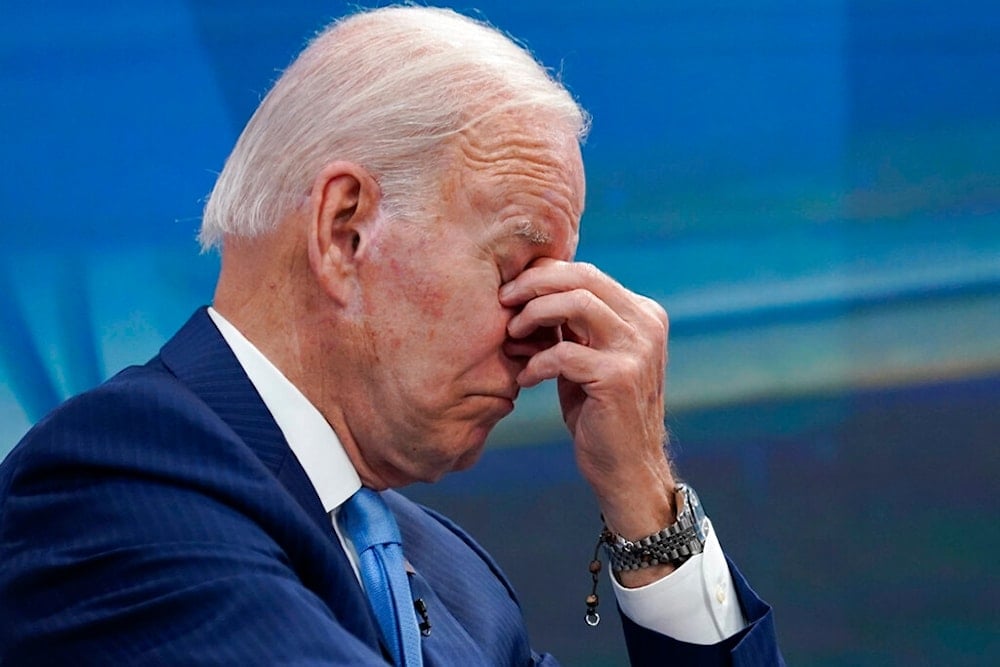Moody's downgrades US outlook to negative amid political polarization
Moody's Investors Service has downgraded its rating outlook for the United States to negative as officials and Wall Street giants warn of domestic inflation and global recession.
-

President Joe Biden conducts a virtual meeting with infant formula manufacturers from the White House, Washington, DC, United States, on June 1, 2022. (AP)
Moody's Investors Service has lowered its rating outlook for the United States government from stable to negative, the agency announced on Friday.
"Moody's Investors Service has today changed the outlook on the Government of United States of America's ratings to negative from stable and affirmed the long-term issuer and senior unsecured ratings at Aaa," Moody's explained.
The institution pointed to high interest rates, ineffective fiscal policy measures, and stagnant revenues, saying that the "US' fiscal deficits will remain very large, significantly weakening debt affordability."
Political polarization within US state institutions such as the US Congress is also a contributing factor to Moody's decision to downgrade the US government's rating.
"Continued political polarization within US Congress raises the risk that successive governments will not be able to reach consensus on a fiscal plan to slow the decline in debt affordability," the ratings agency said.
On the other hand, Deputy Secretary of the Treasury Wally Adeyemo claimed that the American economy "remains strong".
"While the statement by Moody’s maintains the United States' Aaa rating, we disagree with the shift to a negative outlook. The American economy remains strong, and Treasury securities are the world’s preeminent safe and liquid asset," Adeyemo asserted as quoted by CNBC.
Geopolitical tensions raise uncertainty
Commenting on the events of October 7 and what ensued, Federal Reserve Chair Jerome Powell stated that geopolitical tensions are a risk to the world economy and that their effects are still "highly uncertain."
Powell implied that a fresh increase in interest rates was possible since US inflation is "still too high" despite a recent decrease.
He went on to say that more proof of "persistently above-trend growth" or new labor market tightness "could warrant further tightening of monetary policy."
The US experienced a rise in inflation in July for the first time in over a year, even as the Federal Reserve continued its gradual move toward the highest interest rates seen in decades. Nevertheless, some economists are highlighting more positive indicators within the latest economic report.
The Consumer Price Index (CPI) released by the US Bureau of Labor Statistics (BLS) on Thursday revealed a 3.2% increase in the overall cost of consumer goods in July 2023 compared to July 2022. This marked the first instance of inflation increasing in 13 months, following a 3% increase in June.
Stark disagreement within US political institutions and a collection of geopolitical tensions have harmed US's standing, and have also contributed to a worsening US economy.
Read more: Israeli aggression driving global recession, Wall Street giants say

 3 Min Read
3 Min Read








